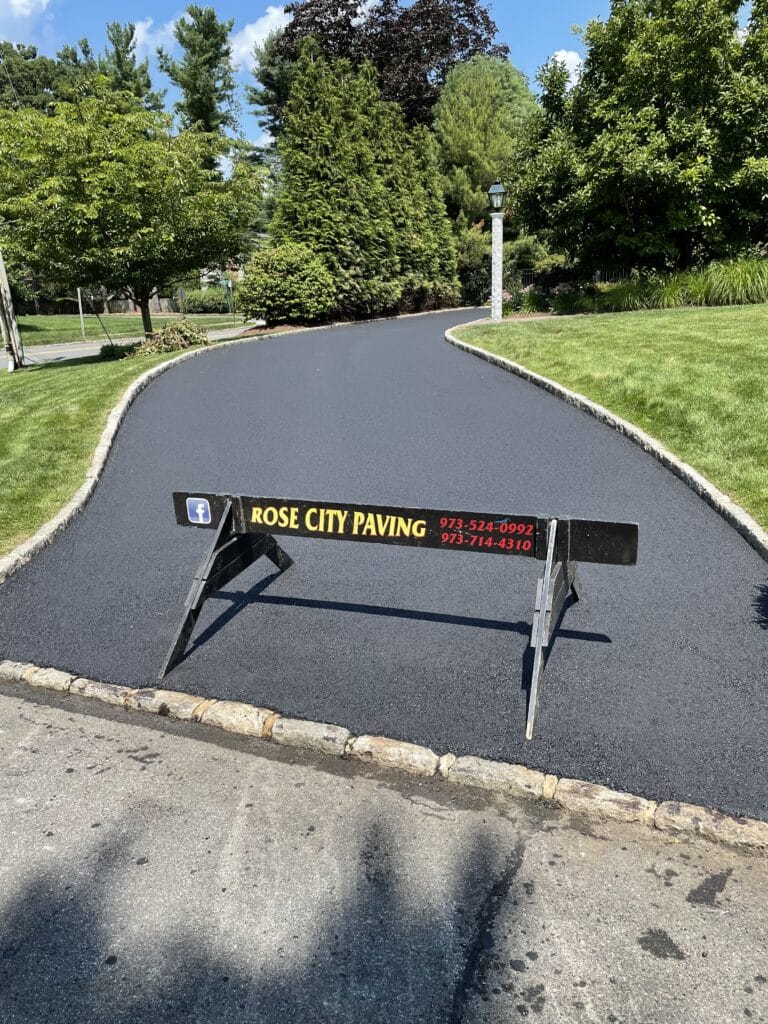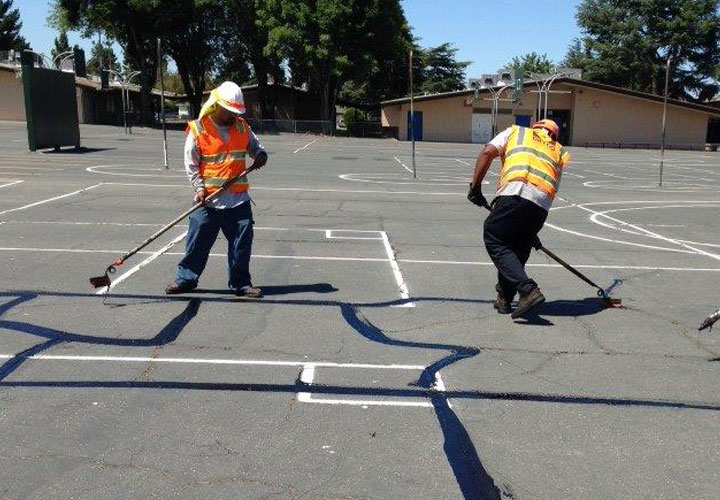Unlock the Secrets of Asphalt Sealing: Maximizing Hot Mix Asphalt Long Life
Unlock the Secrets of Asphalt Sealing: Maximizing Hot Mix Asphalt Long Life
Blog Article
Warm Mix Asphalt: A Sustainable Solution for Sidewalk
Hot Mix Asphalt (HMA) has emerged as a leading sustainable choice for pavement remedies, using a myriad of innovative modern technologies and environmental benefits. Its capability to reuse materials and minimize energy consumption offers a compelling situation for its adoption in roadway building and construction tasks. In addition, the long-term performance and toughness of HMA make it a recommended choice for infrastructure development. As the demand for green building and construction methods grows, discovering the subtleties of HMA's sustainability can supply important insights right into the future of sidewalk solutions.
Environmental Advantages of Hot Mix Asphalt

Additionally, Warm Mix Asphalt aids to alleviate metropolitan warm island effects. Its dark shade absorbs sunlight, reducing the quantity of warmth mirrored back right into the environment compared to lighter-colored pavements. This can lower ambient temperature levels in urban locations, lowering the demand for air conditioning and inevitably reducing energy intake.
On top of that, Warm Mix Asphalt adds to boosted stormwater management. Its permeable nature permits water to infiltrate the pavement and recharge groundwater products, reducing runoff and the danger of flooding. These environmental advantages make Hot Mix Asphalt a lasting option for paving roadways and highways.
Power Efficiency in HMA Production
Is energy effectiveness a critical consider the production of Hot Mix Asphalt (HMA)? Absolutely. Energy plays a substantial role in the production of HMA, affecting both expense and ecological sustainability. One vital aspect of energy efficiency in HMA manufacturing is making use of warm mix asphalt (WMA) technologies (regrading). WMA enables for the mixing and placement of asphalt at lower temperature levels compared to conventional hot mix asphalt, resulting in decreased energy consumption throughout production. This procedure not just reduces fuel use however likewise decreases greenhouse gas exhausts, making it a more environmentally pleasant alternative.
Furthermore, innovations in plant modern technologies have actually brought about more energy-efficient HMA production processes. Modern plants are made with attributes like recycled asphalt pavement (RAP) handling capabilities, efficient heater systems, and improved insulation, all adding to energy financial savings. By optimizing power use in HMA manufacturing, the sector can reduce its carbon footprint while maintaining high-quality pavement products. Power effectiveness is, as a result, a critical consideration in making certain the see it here sustainability of Hot Mix Asphalt production.
Recyclability of Warm Mix Asphalt
The recyclability of Warm Mix Asphalt (HMA) is a crucial aspect of its sustainability and long-lasting environmental effect. HMA is one of the most recycled materials in the USA, with over 100 million lots of recovered asphalt sidewalk (RAP) being reused every year in brand-new sidewalk construction. Recycling HMA uses several environmental benefits, such as reducing the demand for virgin products, decreasing power consumption throughout manufacturing, and lowering the amount of waste sent to landfills.
The procedure of reusing HMA involves crushing the existing sidewalk, squashing it right into smaller sized items, and mixing it with brand-new accumulation and asphalt binder to produce a recycled mix. Generally, the recyclability of HMA plays a considerable function in advertising sustainable practices within the pavement sector.

Long-Term Efficiency of HMA
Asphalt pavements show resilience and strength over an extended duration, reflecting the lasting performance of Warm Mix Asphalt (HMA) Additionally, developments in HMA modern technology, such as the use of polymer-modified binders and warm mix asphalt, have even more boosted the toughness and longevity of HMA pavements. By focusing on quality building and construction and upkeep methods, HMA proceeds to confirm itself as a economical and lasting solution for resilient sidewalk infrastructure.

HMA: Resilience and Sustainability
Showing both toughness and go to my blog sustainability, Hot Mix Asphalt (HMA) has actually come to be a foundation in the construction of durable pavement infrastructures - commercial parking lot paving. HMA's resilience originates from its capability to withstand hefty loads, rough weather, and high web traffic quantities, making it a trustworthy choice for streets, highways, and airport paths. The structure of HMA, which usually consists of aggregates, binder, and filler, plays a critical role in enhancing its discover this info here long life and resistance to put on and tear
In addition, HMA's sustainability hinges on its recyclability and energy-efficient production procedure. The ability to reuse redeemed asphalt sidewalk (RAP) in new HMA mixtures minimizes the need for virgin materials and reduces the ecological effect of pavement building and construction and upkeep. In addition, the energy effectiveness of generating HMA depends on its lower mixing temperatures contrasted to other sidewalk materials, resulting in lowered power consumption and greenhouse gas discharges.
Conclusion
In conclusion, warm mix asphalt (HMA) provides a sustainable solution for pavement with its eco-friendly attributes. HMA's recyclability, power efficiency in production, and long-term resilience make it an environment-friendly selection for roadway construction. By conserving natural resources, reducing waste, and lowering greenhouse gas emissions, HMA plays a crucial duty in advertising sustainability in facilities development. Its capacity to mitigate city warmth island impacts additionally highlights its significance in producing environmentally aware and durable pavement systems.
HMA is one of the most recycled products in the United States, with over 100 million loads of redeemed asphalt pavement (RAP) being reused yearly in brand-new sidewalk building and construction.The process of recycling HMA entails crushing the existing pavement, squashing it into smaller sized items, and mixing it with brand-new aggregate and asphalt binder to develop a recycled mix.Asphalt pavements show toughness and resilience over an extended duration, reflecting the long-lasting performance of Warm Mix Asphalt (HMA) In addition, improvements in HMA technology, such as the usage of polymer-modified binders and warm mix asphalt, have actually further improved the toughness and long life of HMA pavements. The capacity to reuse redeemed asphalt pavement (RAP) in new HMA blends decreases the need for virgin materials and lessens the ecological impact of sidewalk building and construction and upkeep.
Report this page